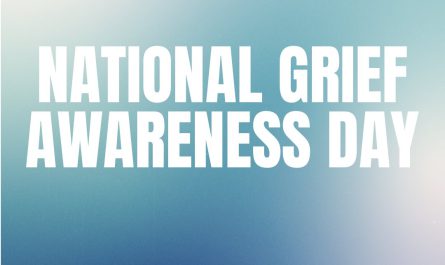International Day for the Elimination of Violence Against Women
A universal problem that cuts beyond national borders, cultural standards, and social level is violence against women. It affects millions of lives each year and violates women’s basic rights and dignity. The International Day for the Elimination of Violence Against Women was established by the United Nations to raise awareness of this urgent issue and advance gender equality. The gruesome murder of the Mirabal Sisters, also known as the “Las Mariposas,” in the Dominican Republic in 1960 is the origin of the International Day for the Elimination of Violence Against Women. Three brave activists named Patria, Minerva, and Maria Teresa Mirabal fought against Rafael Trujillo’s repressive government. Their heinous murder shocked the entire country and the globe, raising awareness of violence against women.
The International Day for the Elimination of Violence Against Women was formally established on November 25th, 1999, by the United Nations General Assembly. The “16 Days of Activism against Gender-Based Violence” campaign, which runs through December 10th, Human Rights Day, also gets underway on this day.These 16 days act as a global call to action, inspiring people and groups to promote change, raise awareness, and take part in actions that strive to end violence against women.
Violence has a serious and perhaps long-lasting effect on one’s mental health. Physical, emotional, or psychological violence can traumatize people and have a serious impact on their mental health. The following are some of the most significant ways that violence can affect mental health:
Post-Traumatic Stress Disorder (PTSD): Being exposed to violent behavior, especially traumatic incidents like physical or sexual assault, or watching violent behavior, can cause PTSD to manifest. Flashbacks, nightmares, excruciating anxiety, and a high level of arousal are all signs of PTSD. People who suffer from PTSD may find it difficult to fall asleep, feel emotionally numb, and cope with daily life.
Anxiety Disorders: A number of anxiety disorders, such as generalized anxiety disorder (GAD), panic disorder, and social anxiety disorder, can be brought on by violence. Survivors of violence may always feel on edge, worry excessively about their safety, and have extreme panic episodes.
Depression: Violence can result in depression, which is marked by chronic unhappiness, hopelessness, and a loss of interest in once-enjoyed activities. Victims of violence could have feelings of worthlessness, guilt, and low self-esteem.
Substance Abuse: Abuse of drugs or alcohol is a common behavior among people who have experienced violence as a strategy to deal with their trauma and emotional distress. Abuse of substances can worsen mental health conditions and start a vicious cycle of addiction and emotional anguish
.
Trust and Relationship Issues: Violence survivors may experience trust problems, which makes it challenging for them to establish and sustain meaningful relationships. Due to the possibility of experiencing another injury, they could find it difficult to open up to others or fear approaching them.
Self-Harm and Suicide Thoughts: Some people may engage in self-destructive activities like self-harm or suicide thoughts as a result of the emotional distress caused by violence. For survivors, the feeling of helplessness and sorrow can be overwhelming.
It’s important to understand that with the correct help and resources, recovering from the negative impacts of violence on one’s mental health is achievable. Individuals can get coping mechanisms, emotional support, and other resources from professional assistance, such as therapy and counseling, to deal with trauma and reconstruct their life. In order to lessen violence’s prevalence and lessen its effects on people and communities, it is also crucial to raise understanding of how it affects mental health and to promote prevention strategies.
The global fight for gender equality and women’s rights is strongly impacted by the International Day for the Elimination of Violence Against Women. Why this day is important is as follows:
Raising Awareness: It informs people, communities, and governments about numerous types of violence against women, such as female genital mutilation, domestic violence, sexual harassment, and human trafficking. The first step in creating a society that honors and respects women is awareness.
Advocating for Change: By drawing attention to the problem of violence against women, this day urges swift action and regulatory adjustments to safeguard women’s rights and assure their safety. It enables groups, governments, and activists to collaborate successfully.
Remembering Victims: This day offers the chance to pay tribute to the innumerable women who have endured harm or lost their lives as a result of gender-based violence, underscoring the critical need to stop future tragedies of this nature.
Gender equality promotion: The impediment to establishing gender equality and a serious violation of human rights is violence against women. By ending violence, women may participate freely in all facets of society—from politics to the workforce—without worry or prejudice.
A powerful message that violence against women will not be accepted is sent when international organizations, governments, and grassroots groups come together on this day to stand in solidarity with survivors of violence.
The International Day for the Elimination of Violence Against Women serves as a somber reminder of the struggles that women endure around the world and the seriousness with which this problem must be addressed. Governments, organizations, and individuals are urged to join together to put an end to violence against women in all of its manifestations. We can create a society where every woman can live free from violence and discrimination, enjoying her rights and dignity to the fullest, by increasing awareness, fighting for change, and supporting gender equality. It is a day to consider the past, but more importantly, it is a day to help create a future in which violence against women will just be a regrettable chapter in the past.



